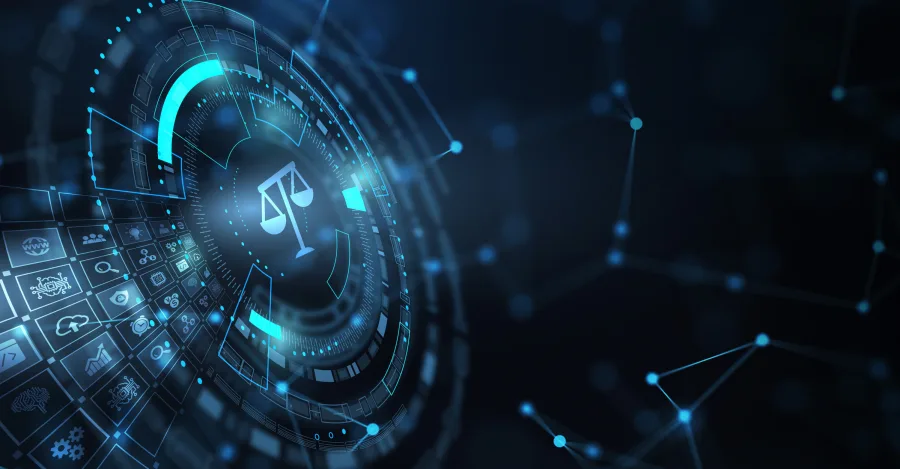Understanding the SAMOSA Act (H.R. 1695)
The SAMOSA Act (H.R. 1695), recently passed by the House of Representatives, establishes strict mandates for federal agencies to implement robust Software Asset Management (SAM) practices. This legislation requires agencies under the CFO Act to conduct comprehensive software asset assessments, address identified gaps, and transition to efficient license management strategies. By consolidating software licenses and adopting enterprise license agreements, the SAMOSA Act is designed to reduce costs, enhance accountability, and improve software governance across the federal government.
With its approval in the House and strong bipartisan support, the SAMOSA Act awaits final passage in the Senate. Federal agencies have a critical opportunity to proactively align with these requirements before compliance deadlines are set.
At SIE, our experts specialize in IT Asset Management (ITAM) and Software Asset Management (SAM), providing tailored solutions to meet federal regulations and compliance needs. With extensive experience in software audits, license optimization, and enterprise IT strategies, we help agencies achieve compliance with the SAMOSA Act while maximizing cost savings and efficiency. Let us guide your agency to success under this transformative legislation.
Download the SAMOSA White Paper
Want to understand
the impact of the SAMOSA Act? Our white paper breaks down compliance
requirements, cost-saving strategies, and key action steps for federal
agencies.
SAMOSA Compliance Specialists
We specialize in guiding agencies through every stage of SAMOSA compliance. Ensuring compliance with the SAMOSA Act requires a strategic approach. Our SAMOSA White Paper explores best practices for federal agencies to navigate these new requirements.
SAM Program Assessments
Conducting thorough assessments to evaluate the current state of SAM programs within agencies, identifying gaps, vulnerabilities, and areas for improvement.
Remediation Strategies
Developing and implementing targeted strategies to remediate identified gaps, ensuring compliance with the SAMOSA Act requirements and industry best practices.
Enterprise License Positioning
Assisting agencies in establishing efficient license management practices, optimizing software usage, and mitigating compliance risks.
Assess Your SAMOSA Act Compliance Readiness
Are you prepared to meet the SAMOSA Act’s requirements? Take our SAMOSA Act Readiness Survey today and gain access to tailored resources to help you stay ahead of federal IT compliance challenges.
Why Take the Survey?
- Lead with Confidence: Uncover potential gaps in your compliance strategy and receive actionable insights.
- Exclusive Resource: Complete the survey to receive a complimentary white paper packed with best practices and expert tips on SAMOSA Act compliance.
- Expert Guidance: After completing the survey, one of our SAMOSA experts will reach out to schedule a personalized assessment and provide additional resources to support your federal IT compliance efforts.
Start Now
Take the SAMOSA Act Readiness Survey
By completing the survey, you’ll gain access to invaluable resources and a direct line to the expertise you need to achieve SAMOSA Act compliance.
Frequently Asked Questions
The Strengthening Agency Management and Oversight of Software Assets (SAMOSA) Act is an upcoming federal law aimed at improving how agencies manage and optimize their software assets. It introduces new standards for software procurement, visibility, and accountability to ensure agencies can track and report their software usage efficiently, reduce costs, and avoid penalties.
For more information, check out our blog.
Federal Agencies buy billions of dollars in software every year. Mismanagement, duplicative purchasing, or unauthorized use can lead to costly problems for the government. The SAMOSA Act requires agencies to understand their software asset management (SAM) programs by assessing current state maturity, remediating gaps, and working toward more efficient license management practices.
The SAMOSA Act requires agencies to adopt more structured software procurement processes, including the consolidation of software licenses and the adoption of enterprise license agreements. These changes aim to reduce redundancy, lower costs, and provide agencies with greater visibility into software usage across their operations.
For more information, check out our blog.
The SAMOSA Act applies to the 24 Chief Financial Officer (CFO) Act Agencies, including the Department of Defense (DOD).
Non-compliance with the SAMOSA Act can result in financial penalties, increased audit scrutiny, and reputational damage. Agencies that fail to maintain accurate software records or meet reporting requirements could face sanctions, making it essential to prepare for compliance as soon as possible.
For more information, check out our blog.
By complying with the SAMOSA Act before it becomes law, agencies can stay ahead of the curve and benefit from having a more robust SAM capability. Having a strong SAM capability can often pay for itself by helping agencies:
- Manage Costs
- Mitigate Risks of Software Vendor Audits
- Reduce Security Vulnerabilities from Unsupported Software Being Installed
SIE helps agencies comply and strengthen Software Asset Management programs to maximize the return on investment (ROI) on software investments.
Agencies should begin by conducting a comprehensive software inventory to assess current assets, contracts, and usage. Implementing centralized tracking systems, evaluating software procurement processes, and consolidating licenses are key steps to ensure compliance with the SAMOSA Act when it becomes law.
For more information, check out our blog.
Software Asset Management is a set of business practices that takes financial, installation, usage, contractual, and risk considerations in managing the life cycle of software assets. A mature SAM program should enable governance, contractual, financial, and inventory functions supporting asset management and strategic decision-making. SAM's objective is to maximize the value of these assets while minimizing risk.
Generally, Enterprise License Positions (ELPs) of software allows the organization to access all features of the software at the most favorable price. This is due to volume discounts and best-in-class terms afforded to an enterprise buying mass quantities of software and common products. An Enterprise License Position usually, but not always, prompts unlimited access and use of the software for the organization's users. In non-enterprise licenses, there are usually some limitations and restrictions to access specific features for end-users. The SAMOSA Act requires agencies to utilize ELPs for cost savings, software centralization and achieving best-in-class terms and conditions (Ts & Cs).
SIE has been supporting agencies with similar requirements to the SAMOSA Act since the MEGABYTE Act was passed in 2016. We are the SAM Managed Service Provider for multiple Federal agencies, and can deploy best practices at your agency, which have been developed from decades of experience from our practitioners in every industry. SIE has a successful approach to helping agencies comply with the SAMOSA Act requirements, while also working toward optimizing software licensing across agencies. Our small company culture, dedication to our clients, and a strong team of experienced SAM professionals make us an excellent choice to help your agency comply with the SAMOSA Act.

